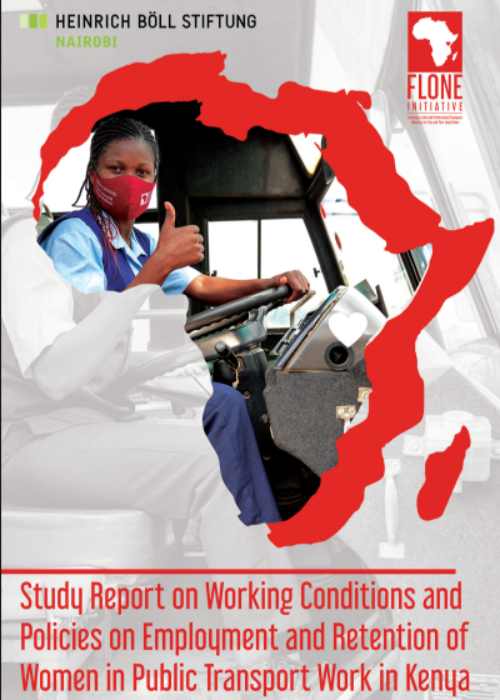Historically, the public transportation industry in many African cities has been overwhelmingly male-dominated. However, as more women seek employment, they are venturing into transportation jobs, facing numerous gender-related challenges. Women’s representation in the industry remains particularly low.
Strengthening women’s roles within the transport industry can create safer public spaces and improve mobility for everyone. The Flone Initiative aims to promote gender equity and professionalism in public transport, leveraging existing partnerships to enhance policies for increased economic participation by women in the industry.
This study aimed to assess working conditions and evaluate existing policies affecting women’s involvement in employment, retention, and promotion in the industry. It included a review of policy documents and publications, surveys with female workers (conductors, drivers, and stage attendants), and in-depth interviews with PSV SACCO managers, union representatives, and partner organizations. Although public transport is diverse, this study focused on public road transport and associated spaces.
The study revealed challenges faced by women in recruitment, retention, and promotion, resulting in their low representation and participation in the industry. SACCO managers, all men, acknowledged that women make good employees but preferred them in roles involving handling cash, such as conductors or stage attendants, rather than as drivers.
The industry remains male-dominated due to several factors, including structural barriers like long working hours, attitudinal barriers, and environmental factors such as insecurity and lack of sanitation facilities. Despite regulations requiring transport providers to employ operators on a permanent basis, the industry remains informal, with precarious employment terms for conductors and drivers. This is due to factors like low profitability and the informal nature of the industry.
While unions exist for collective bargaining, they struggle to penetrate the informal public transport system. Sexual harassment of both workers and commuters is a critical issue, with the majority of female workers having experienced harassment. Despite the Employment Act 2007 requiring SACCOs to have documented sexual harassment policies and reporting mechanisms, these are often absent.
The findings of this study were used to develop “Policy Briefs” with key gender-sensitive policy recommendations for improving labor conditions for women in the public road transport sector.

